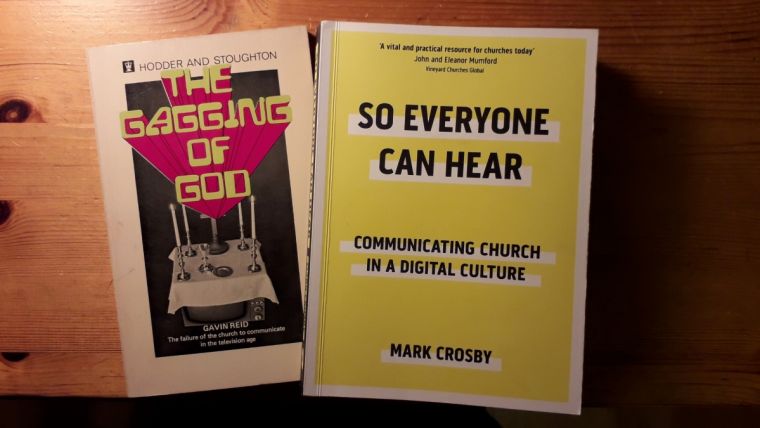Fifty years of struggling to communicate

Half a century separates two powerful books on church communications. Yet both have a similar message. So has the church just not been listening to what its communicators have been telling it?
This week sees the publication of a new guide to communicating the church, with praise from church leaders including Mike Pilavachi of Soul Survivor, Simon Ponsonby of St Aldate's, Oxford, and John and Debby Wright, national directors of Vineyard Churches in the UK and Ireland.
The book, So Everyone Can Hear – communicating church in a digital culture (SPCK Publishing), has been written by Vineyard's communications director Mark Crosby.
But turn the clock back 50 years, and the Rev Gavin Reid, then publications secretary of the Church Pastoral Aid Society, released a hard-hitting book that challenged church leaders in 1969. It was called The Gagging of God - The failure of the church to communicate in the television age (Hodder & Stoughton, 1969).
Mark Crosby's well-researched and immensely helpful guide to modern church communications points the way forward for churches wanting to make a real impact in their local community. And it also echoes advice and warnings given five decades ago.
So what's changed, and what hasn't?
Communications in 1969 and 2019 could not be more different. In 1969, TV programmes switched from black and white to colour, and the Sun newspaper relaunched as a tabloid with its copy still produced on manual typewriters. The internet was a far distant dream, and most people picked up their view of the world from TV, radio and the press.
Fast forward half a century and TV – now with multi-channels, Netflix and catch-up - remains a significant means of communication. But the web and social media have radically transformed how people receive and transmit information, opinion and news.
Yet there is still a telling message for the church in the words written by Gavin Reid back in the year that Monty Python first took to TV screens and the dubious humour of Carry on Camping was the year's most popular movie.
Gavin Reid, who later became Bishop of Maidstone, wrote: "The greatest threat to the gospel today...is the breakdown of communication, not only from the Church to those outside but also the breakdown of communication in every field of daily life."
He wrote (in the masculine language of that age) that unless Christians can find ways of saying things that connect with modern-day people, "then not only is modern man in a desperate plight, and not only is the Church facing extinction, but Almighty God Himself is gagged."
Fifty years on, Mark Crosby is calling on the church radically to review how it communicates. He writes: "Times have changed, attention spans have changed – and churches need to change as well.
"We need to carefully think through how to be effective in our communications so that people can hear a message of invitation from the Church that echoes the persistent knocking of Jesus on the door of our hearts."
Crosby's 250-page book is a clarion call to churches to embrace today's digital culture, and to develop their communications to present the Christian gospel to women and men who live much of their lives online. The Church of England has taken massive steps forward in this area in recent years.
Mark Crosby challenges the church to go back to basics in its communications. He stresses the importance of vision and values, of strategy, of prayerful planning – before even the first word of communication is tapped out on a keyboard.
That's a long way from the place where many churches begin their communications: the place where someone says 'why don't we overhaul our website/magazine/email bulletin' and gets given the job because they spotted the need.
Gavin Reid similarly identified that communities were becoming more fragmented, that churches had to look beyond their walls to reach new people, that people used to watching TV would struggle with long wordy sermons, and that the type of language we use in church is meaningless to many people outside our walls.
But supremely both men share a passion for the Christian gospel, communicated in action, in love and in the power of the Holy Spirit, with an emphasis on God both at work in the local community, and in building community.
Two books, written half a century apart, with a similar challenge to the church: a challenge to raise our game in how we communicate.
Rev Peter Crumpler has been involved in church communications since writing about his church for local newspapers in the 1970s. He worked in communications for local government and for an international energy company and was communications director for the Church of England from 2004 to 2011.











